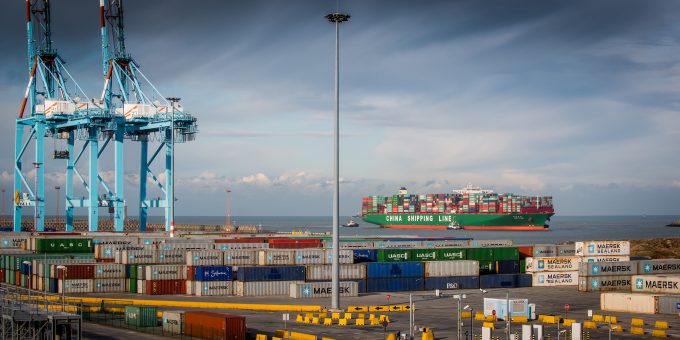JOC: MSC's Medlog set to take over US intermodal provider COFC Logistics
JOC reports: “A subsidiary of Mediterranean Shipping Co. (MSC) has agreed in principle to acquire a ...

The 2M alliance is adding a discharge call at Zeebrugge to its Shogun/AE1 and Lion/AE6 Asia – North Europe loops to mitigate the impact of worsening landside congestion at other North European hub ports.
“The additional port of call will provide customers with the option to discharge at an easily accessible port, while offering improved coverage for inland connections,” said MSC.
“The two new direct calls will also help to reduce pressure amid the ongoing congestion in European ports,” said the carrier.
Indeed, ...
Trump tariffs see hundreds of cancelled container bookings a day from Asia
'Disastrous' DSV-Schenker merger would 'disrupt European haulage market'
'To ship or not to ship', the question for US importers amid tariff uncertainty
'Chaos after chaos' coming from de minimis changes and more tariffs
List of blanked transpac sailings grows as trade war heats up and demand cools
EC approves DSV takeover of DB Schenker
Shippers in Asia restart ocean shipment bookings – but not from China
Forto 'sharpens commercial priorities' as it lays off one-third of staff
India withdraws access for Bangladesh transhipments, in 'very harmful' decision
'Tariff hell' leaves industries in limbo – 'not a great environment to plan'
IndiGo fleet expansion plan will include a major push to boost cargo volumes
Pre-tariff rush of goods from US to China sees air rates soar, but not for long
De minimis-induced ecommerce demand slump could cripple freighter operators
'Restoring America's maritime dominance' – stop laughing at the back of the class
Hapag 'took the bigger risk' when it signed up to Gemini, says Maersk
Navigating tariffs: 'like trying to solve a Rubik's cube while colour-blind'

Comment on this article